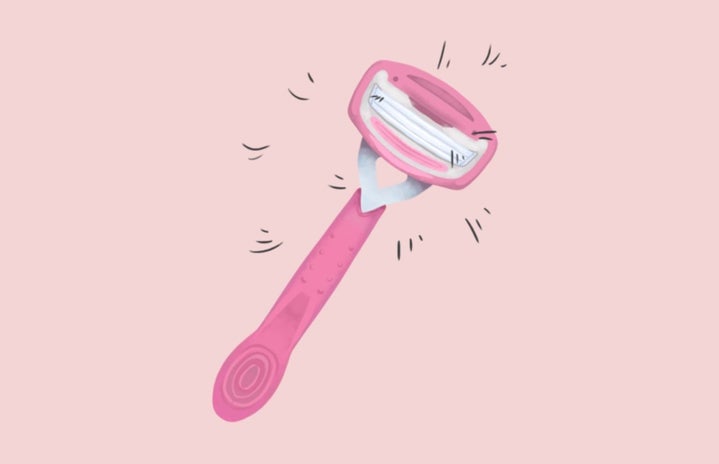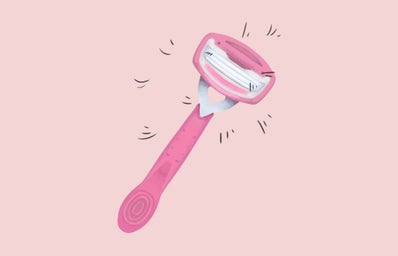To round off this month on the topic of our relationships with our inner selves, I want to discuss self-image. This relationship is something that many women struggle with due to how objectified and idealised our appearances are. The body positivity movement stems from the pushback against the objectification of women, and a big part of that is the acceptance of body hair on all bodies.
As a kid, I was extremely conscious of my having body hair. I wasn’t aware of it at first so I went through childhood blissfully ignorant. Only upon entering primary school was my body hair pointed out and mocked. A gorilla, manly and hence, unladylike.
In my pre-teens, I spent countless hours researching hair removal methods and often begged my mother to let me undergo hair removal procedures like waxing. She would tell me not to be silly and to move past my concerns. In hindsight, I know she wanted me to focus on being a child instead of these nonsensical thoughts, but at the time, it felt dismissive.
And yes, even though my thoughts and feelings are valid, they are still nonsensical — in the sense that people should not be made to feel like they have to remove their body hair to be considered a woman! I wasted hours of my youth on research and money on hair removal products like Veet, wax or shaving items. Even now, 10 years later, and after various and multiple hair removal sessions, I have to work hard to tell myself that body hair is not a big deal.
It really isn’t. It’s natural. It’s normal. It helps us regulate heat. It’s meant to be on our bodies. So why is it that 84% of women feel the need to “groom” their pubic hair? Women are also 25% more likely to get an injury from shaving than men, and yet, women still, shave around 12 times a month.
Advertisements for women or with women feature hairless models. Media, especially porn, emphasises how women are or should be hairless. Hair removal is truly a form of gender social control — to occupy our time, money, and to make us think that we are less than we are.
But more than how body hair should be natural and part of us, what’s insidious in this narrative is that it’s racialised. When I was 14, my Indian classmate had her arms waxed. She was showered with compliments and praised for her smooth skin. At the time, I felt discomfort, but I didn’t understand it. Now, I can explain.
When we emphasise beauty through hairlessness, who are we idealising? What kind of woman is the ideal form of beauty? In the context of Singapore and this question, it would be Chinese women being the most beautiful and desirable due to them having thinner and more sparse hair. With that, women of Indian or Malay ethnicity are then understood as less desirable. Hairiness seems incompatible with prescribed femininity in Singapore as hair that is lighter in colour, texture and distribution is simply more attractive and acceptable. Women of South or West Asian ethnicity often have completely different body hair to those of East Asian descent. In fact, darker and thicker body hair is written in their genes. Even media representations of those with body hair as part of the body positive movement mostly show those with thin sparse hair as those who are allowed to be beautiful when having body hair. For example, the body positivity tags on Instagram specifying body hair (#bodyhair or #bodyhairdontcare) features women with this type of body hair.
Now, who am I, a woman who is Chinese for most intents and purposes, to criticise? Surely, I must be one of the women with thin and sparse hair, and hence considered beautiful. However, I am also Chindian and have dark and thick body hair written in my genes. This is why I grew up the way I did, thinking I was gross and disgusting for having more of a moustache than the boys in my class, or for having long arm hair, or for the hair on my legs being curly. I’d always have the 5 o’clock shadow men are supposed to have on their faces, but on my legs when I shave. The demonisation of body hair on women is what resulted in me ultimately going for semi-permanent hair removal in the form of IPL, which is painful, invasive (strangers are looking and touching your bare body), and expensive. This is the pink tax in its most excessive form.
Yet, I still go through it. And having done so, only now do I feel comfortable going without shaving my legs for weeks or wearing sleeveless shirts. Because my hair is now like the ideal woman’s — thinner and sparser.
Even though I understand conceptually that hair removal should be a personal choice, it sure doesn’t feel like one. We all need to be more aware of our relationships and issues in regards to our body image, and understand why we think the way we do.
Studies have been done on racialised ideas of beauty through body hair, though mostly in the USA and not in Singapore. However, that does not mean their findings cannot apply to us. You can take a look at the various sources below to learn more about this topic.
Pubic Hair Grooming Prevalence and Motivation Among Women in the United States
The Casualties of Women’s War on Body Hair
Many Women Prefer to Groom, Citing Hygiene (and Baffling Doctors)


